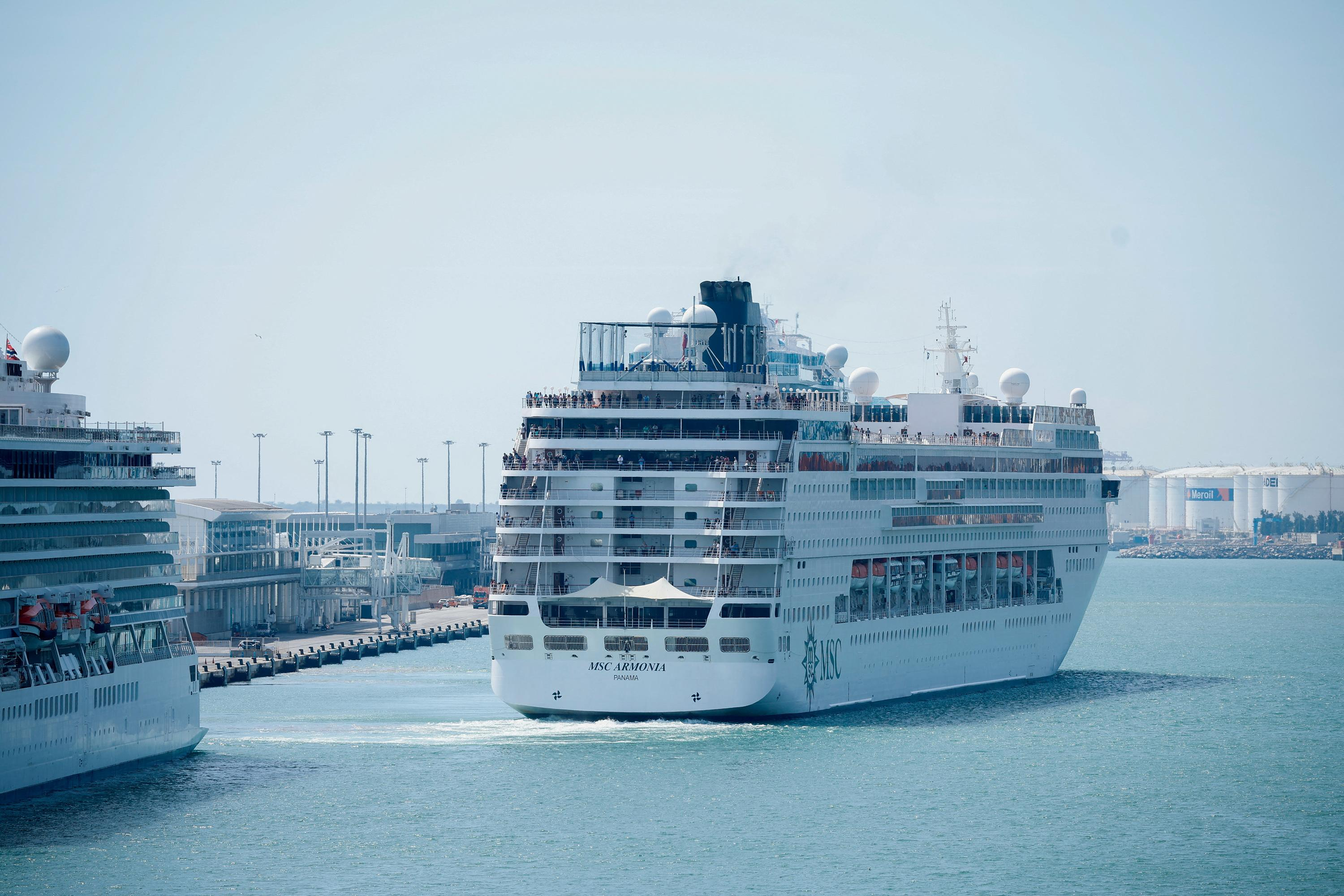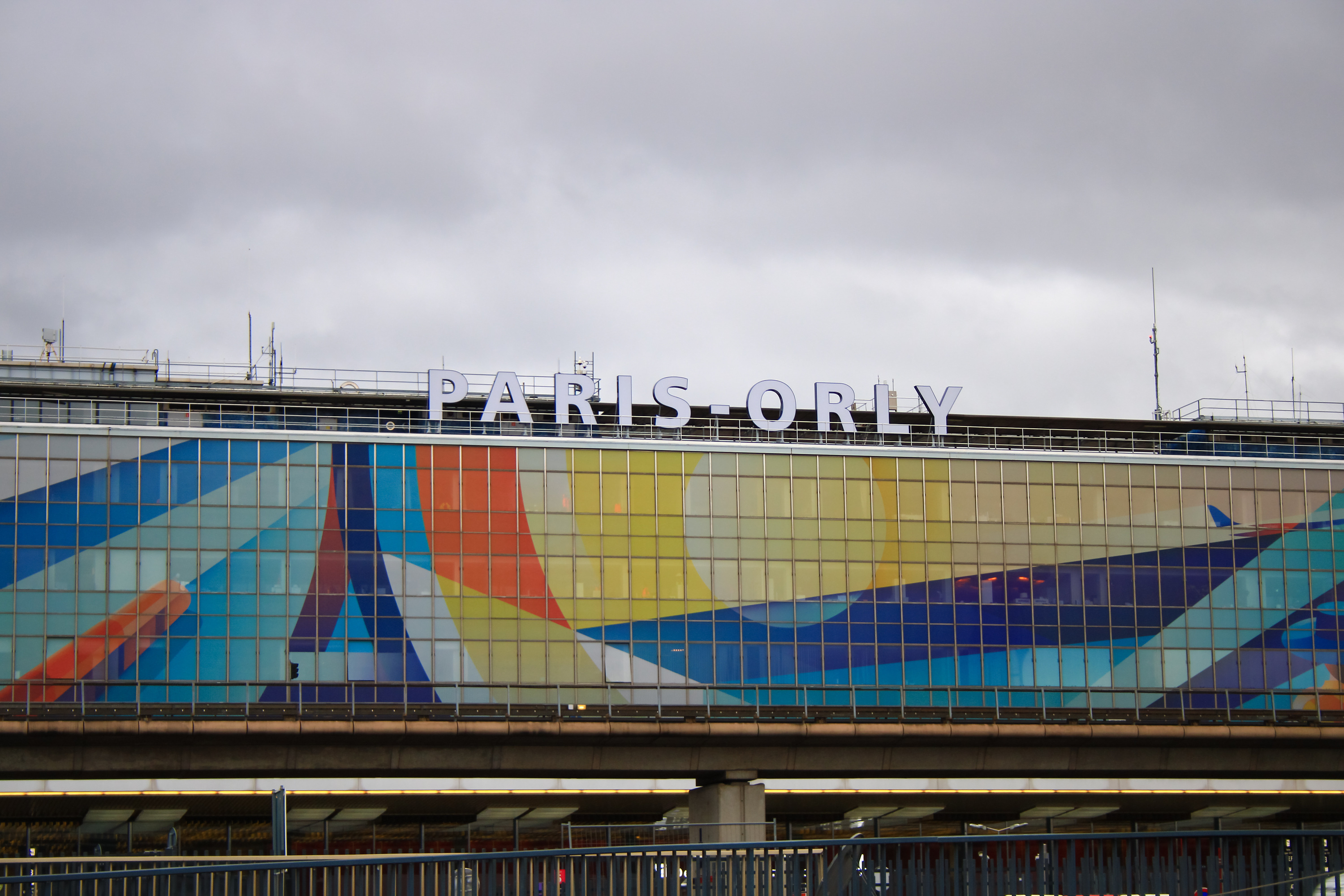During her visit to Paris earlier this week, Annalena Baerbock (Greens) asserted that the Franco-German relationship was not in ruins. "There are no broken pieces that have to be swept up in these moments," assured the German Foreign Minister. However, the fact that she held talks with French President Emmanuel Macron on Monday shows how much effort is being made on both sides to reach an agreement.
Because it is not usual for the President to receive a foreign minister in the Élysée. But Macron ignored the protocol twice this week and also asked Economics Minister Robert Habeck (Greens) to talk.
On Friday, French Prime Minister Elisabeth Borne will make up for her trip to Berlin and the meeting with the Federal Chancellor that was already planned for the end of September. Both sides know that in times of war, Europe cannot afford a Franco-German rift.
Therefore, all signs point to reconciliation. But again and again compromises have to be found and the rifts that traditionally separate Berlin and Paris on many issues have to be overcome.
Germany has made a giant leap since the outbreak of war in Ukraine. Nevertheless, the different military culture is the deepest chasm separating the two countries. In France, the president is the supreme commander of the army, in Germany everything remotely related to weapons has to be approved by the Bundestag.
The nuclear power France proudly has its soldiers adorned with feathers and sabers parading down the Champs Élysées, in Germany the sight of Bundeswehr soldiers with torches at tattoos honoring fallen comrades tends to trigger embarrassment or anxiety.
One can argue about whether the war on our own doorstep promoted Macron's project of strategic autonomy for Europe or instead kissed awake NATO, which he had declared "brain dead". From a German perspective, the Russian threat shows that the transatlantic alliance is a "central pillar and NATO is an indispensable part of our security," as the coalition agreement states.
In Paris, however, people are convinced that one does not exclude the other. From a French perspective, Moscow's war of aggression has made the need for strategic autonomy even more obvious.
After the ambitious armament projects that Germany and France announced in 2017 almost ended in fiasco, the joint fighter jet, Future Combat Air System, or FCAS for short, is now to be built after all. However, the constant tugging between German and French armaments manufacturers has shown that although development costs would be spread over several shoulders, in the end solid industrial interests count.
For months they seemed insurmountable. There is still no question of a happy ending. A week ago, the Ministry of Defense in Berlin announced that an agreement had been reached. The French counterparts, however, knew nothing about it.
Airbus followed up with a cautious explanation, but the French company Dassault remained silent. The contract is still not signed. The chaotic and hasty communication alone shows that you are not really talking to each other.
The two neighboring countries are also worlds apart when it comes to energy policy issues. France gets 70 percent of its electricity from nuclear power and has criminally neglected the expansion of renewable energies. Germany has decided to phase out nuclear power, but has relied entirely on Russian gas.
In these fast-moving times, it may have been forgotten that Paris opposed the Nord Stream 2 pipeline and blocked approval for construction in Brussels for a long time. Macron justified his vehement resistance by saying that dependence on Moscow should not be strengthened and that the interests of Eastern Europeans should be taken into account. Arguments that didn't go down well in Berlin.
Macron embodies a French technocracy that saw and still sees its civil and military independence secured by decades of unchallenged nuclear culture. Conversely, the German Greens could not even jump over their shadow in an emergency. The painful debate about the extension of the running time of a few nuclear power plants could only end with a word of authority from the chancellor.
Interestingly, however, there was no malice or gloating from the French side in view of the German energy dilemma. This may be due to the fact that everyone is currently in the same boat and that France also has serious problems with its energy supply.
Almost half of France's nuclear power plants are still idle due to necessary repairs. The electricity exporter has turned into an importer in this energy crisis of all things. But while opinions are divided on the question of capping the price of gas in Brussels, Paris and Berlin are showing exceptional solidarity, at least when it comes to supply: France is supplying gas to Germany, while the Federal Republic of Germany is helping the nuclear nation with electricity.
President Macron took office in 2016 with a promise to reform France and finally restructure the finances. But his enthusiasm was quickly curbed. First came the yellow vest crisis, then the corona pandemic, and finally the Ukraine war.
During the pandemic, Macron wanted to save France's economy "by any means". He had literally adopted the credo of his Italian friend Mario Draghi, who, as head of the European Central Bank, coined the formula of "whatever it takes".
In view of the energy crisis, it is still valid. Paris began capping rising electricity prices a year ago. The already very high government deficit will therefore continue to grow in the coming year. Just this week, the International Monetary Fund (IMF) reprimanded Paris again.
The debt rules in the euro zone are still suspended by an emergency clause, which is why France can continue to put off its mountain of debt for the time being. With a debt ratio of 120 percent of annual economic output, it has long been calling for a redefinition of fiscal rules in Brussels.
And while German taxpayers like to have the feeling that they have to finance the sweet life of the so-called Club Med states in the south, the French have the suspicion that their neighbors have been using their immense export surpluses for years with low wages and an economic policy that is not always based on solidarity has bought. On Thursday, Federal Finance Minister Christian Lindner (FDP) visited his French counterpart Bruno Le Maire to talk about "current economic and financial policy issues", as the ministry announced in Berlin.
Despite all the rifts: In the crisis, Paris and Berlin now want to move closer together and work closely together on key technologies. At least that's what Habeck and his French counterpart assured on Tuesday in Paris. There is now even agreement that a European answer to the American anti-inflation law is to be given.
Scholz, who wants to avoid a trade war with the US at all costs, has obviously sided with France in the face of distortions of competition and the threat of industrial production moving away.

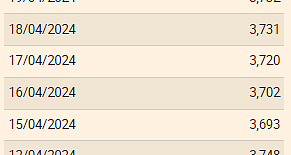 The Euribor today remains at 3.734%
The Euribor today remains at 3.734% Germany: the trial of an AfD leader, accused of chanting a Nazi slogan, resumes this Tuesday
Germany: the trial of an AfD leader, accused of chanting a Nazi slogan, resumes this Tuesday New York: at Columbia University, the anti-Semitic drift of pro-Palestinian demonstrations
New York: at Columbia University, the anti-Semitic drift of pro-Palestinian demonstrations What is Akila, the mission in which the Charles de Gaulle is participating under NATO command?
What is Akila, the mission in which the Charles de Gaulle is participating under NATO command? What High Blood Pressure Does to Your Body (And Why It Should Be Treated)
What High Blood Pressure Does to Your Body (And Why It Should Be Treated) Vaccination in France has progressed in 2023, rejoices Public Health France
Vaccination in France has progressed in 2023, rejoices Public Health France Food additives suspected of promoting cardiovascular diseases
Food additives suspected of promoting cardiovascular diseases “Even morphine doesn’t work”: Léane, 17, victim of the adverse effects of an antibiotic
“Even morphine doesn’t work”: Léane, 17, victim of the adverse effects of an antibiotic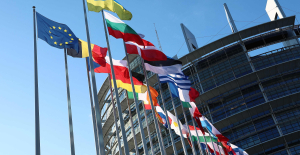 MEPs validate reform of EU budgetary rules
MEPs validate reform of EU budgetary rules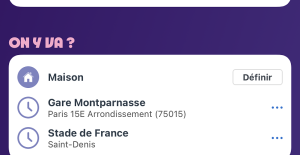 “Public Transport Paris 2024”, the application for Olympic Games spectators, is available
“Public Transport Paris 2024”, the application for Olympic Games spectators, is available Spotify goes green in the first quarter and sees its number of paying subscribers increase
Spotify goes green in the first quarter and sees its number of paying subscribers increase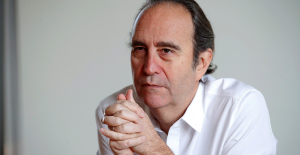 Xavier Niel finalizes the sale of his shares in the Le Monde group to an independent fund
Xavier Niel finalizes the sale of his shares in the Le Monde group to an independent fund Owner of Blondie and Shakira catalogs in favor of $1.5 billion offer
Owner of Blondie and Shakira catalogs in favor of $1.5 billion offer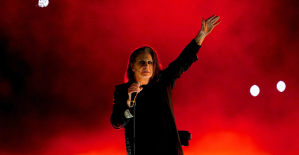 Cher et Ozzy Osbourne rejoignent le Rock and Roll Hall of Fame
Cher et Ozzy Osbourne rejoignent le Rock and Roll Hall of Fame Three months before the Olympic Games, festivals and concert halls fear paying the price
Three months before the Olympic Games, festivals and concert halls fear paying the price With Brigitte Macron, Aya Nakamura sows new clues about her participation in the Olympics
With Brigitte Macron, Aya Nakamura sows new clues about her participation in the Olympics Skoda Kodiaq 2024: a 'beast' plug-in hybrid SUV
Skoda Kodiaq 2024: a 'beast' plug-in hybrid SUV Tesla launches a new Model Y with 600 km of autonomy at a "more accessible price"
Tesla launches a new Model Y with 600 km of autonomy at a "more accessible price" The 10 best-selling cars in March 2024 in Spain: sales fall due to Easter
The 10 best-selling cars in March 2024 in Spain: sales fall due to Easter A private jet company buys more than 100 flying cars
A private jet company buys more than 100 flying cars This is how housing prices have changed in Spain in the last decade
This is how housing prices have changed in Spain in the last decade The home mortgage firm drops 10% in January and interest soars to 3.46%
The home mortgage firm drops 10% in January and interest soars to 3.46% The jewel of the Rocío de Nagüeles urbanization: a dream villa in Marbella
The jewel of the Rocío de Nagüeles urbanization: a dream villa in Marbella Rental prices grow by 7.3% in February: where does it go up and where does it go down?
Rental prices grow by 7.3% in February: where does it go up and where does it go down? Europeans: “All those who claim that we don’t need Europe are liars”, criticizes Bayrou
Europeans: “All those who claim that we don’t need Europe are liars”, criticizes Bayrou With the promise of a “real burst of authority”, Gabriel Attal provokes the ire of the opposition
With the promise of a “real burst of authority”, Gabriel Attal provokes the ire of the opposition Europeans: the schedule of debates to follow between now and June 9
Europeans: the schedule of debates to follow between now and June 9 Europeans: “In France, there is a left and there is a right,” assures Bellamy
Europeans: “In France, there is a left and there is a right,” assures Bellamy These French cities that will boycott the World Cup in Qatar
These French cities that will boycott the World Cup in Qatar Serie A: Bologna surprises AS Rome in the race for the C1
Serie A: Bologna surprises AS Rome in the race for the C1 Serie A: Marcus Thuram king of Italy, end of the debate for the position of number 9 with the Blues?
Serie A: Marcus Thuram king of Italy, end of the debate for the position of number 9 with the Blues? Milan AC-Inter Milan: Thuram and Pavard impeccable, Hernandez helpless… The tops and flops of the derby
Milan AC-Inter Milan: Thuram and Pavard impeccable, Hernandez helpless… The tops and flops of the derby Ligue 2: Auxerre leader, Bordeaux in crisis, play-offs... 5 questions about an exciting end of the season
Ligue 2: Auxerre leader, Bordeaux in crisis, play-offs... 5 questions about an exciting end of the season




